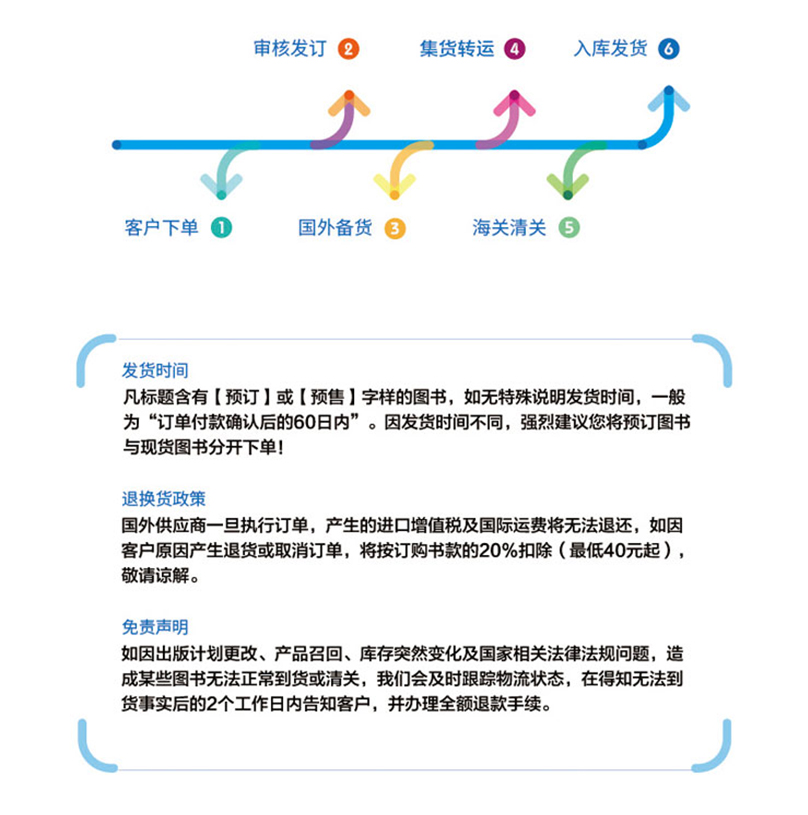[Pre -Sale] Двигатели предприятия: экономическая история нового

Цена: 7 809руб. (¥436)
Артикул: 17322678070
Вес товара: ~0.7 кг. Указан усредненный вес, который может отличаться от фактического. Не включен в цену, оплачивается при получении.
Описание товараPHA+PGltZyBzcmM9Imh0dHBzOi8vaW1nLmFsaWNkbi5jb20vaW1nZXh0cmEvaTMvNDU0MjY2NjIwL1QydHJibVhkbFhYWFhYWFhYWF8hITQ1NDI2NjYyMC5qcGciPjxicj48YnI+PGRpdiBzdHlsZT0id2lkdGg6IDc0OC4wcHg7Ym9yZGVyOiAxLjBweCBzb2xpZCAjZTZlNmU2OyI+PHRhYmxlIGJvcmRlcj0iMCIgc3R5bGU9ImJvcmRlci1jb2xsYXBzZTogY29sbGFwc2U7Zm9udC1zaXplOiAxMi4wcHg7bGluZS1oZWlnaHQ6IDI1LjBweDsiIHdpZHRoPSI3NDgiPjx0cj48dGQgY29sc3Bhbj0iMiIgc3R5bGU9ImJhY2tncm91bmQ6ICNlZGVkZWQ7aGVpZ2h0OiAyMy4wcHg7bGluZS1oZWlnaHQ6IDIzLjBweDtjb2xvcjogIzhlMDEwMTtib3JkZXItYm90dG9tOiAyLjBweCBzb2xpZCAjZTZlNmU2O2ZvbnQtc2l6ZTogMTIuMHB4O2ZvbnQtd2VpZ2h0OiBib2xkO3RleHQtaW5kZW50OiAxMC4wcHg7Ij48c3BhbiBzdHlsZT0iZm9udC1mYW1pbHk6IHZlcmRhbmE7Ij5Qcm9kdWN0IERldGFpbHM8L3NwYW4+0J7RgdC90L7QstC90LDRjyDQuNC90YTQvtGA0LzQsNGG0LjRjzwvdGQ+PC90cj48dHI+PHRkIHN0eWxlPSJjb2xvcjogIzIyMjIyMjt3aWR0aDogMjEwLjBweDt0ZXh0LWFsaWduOiByaWdodDtwYWRkaW5nLXJpZ2h0OiAxMC4wcHg7Ij48c3BhbiBzdHlsZT0iZm9udC1mYW1pbHk6IHZlcmRhbmE7Ij5JU0JOLTEzPC9zcGFuPtCd0L7QvNC10YAg0LrQvdC40LPQuDwvdGQ+PHRkIHN0eWxlPSJjb2xvcjogIzIyMjIyMjtwYWRkaW5nLWxlZnQ6IDEwLjBweDsiPiA5NzgwNjc0MDA5ODQ0PC90ZD48L3RyPjx0cj48dGQgc3R5bGU9ImNvbG9yOiAjMjIyMjIyO3RleHQtYWxpZ246IHJpZ2h0O3BhZGRpbmctcmlnaHQ6IDEwLjBweDsiPjxzcGFuIHN0eWxlPSJmb250LWZhbWlseTogdmVyZGFuYTsiPkF1dGhvcjwvc3Bhbj7QsNCy0YLQvtGAPC90ZD48dGQgc3R5bGU9ImNvbG9yOiAjMjIyMjIyO3BhZGRpbmctbGVmdDogMTAuMHB4OyI+IFBldGVyIFRlbWluPC90ZD48L3RyPjx0cj48dGQgc3R5bGU9ImNvbG9yOiAjMjIyMjIyO3RleHQtYWxpZ246IHJpZ2h0O3BhZGRpbmctcmlnaHQ6IDEwLjBweDsiPjxzcGFuIHN0eWxlPSJmb250LWZhbWlseTogdmVyZGFuYTsiPkZvcm1hdDwvc3Bhbj7QktC10YDRgdC40Y88L3RkPjx0ZCBzdHlsZT0iY29sb3I6ICMyMjIyMjI7cGFkZGluZy1sZWZ0OiAxMC4wcHg7Ij7QntC/0LvQsNGC0LAg0LIg0LzRj9Cz0LrQvtC5INC+0LHQu9C+0LbQutC1PC90ZD48L3RyPjx0cj48dGQgc3R5bGU9ImNvbG9yOiAjMjIyMjIyO3RleHQtYWxpZ246IHJpZ2h0O3BhZGRpbmctcmlnaHQ6IDEwLjBweDsiPjxzcGFuIHN0eWxlPSJmb250LWZhbWlseTogdmVyZGFuYTsiPlBhZ2VzIE51bWJlcjwvc3Bhbj7QmtC+0LvQuNGH0LXRgdGC0LLQviDRgdGC0YDQsNC90LjRhjwvdGQ+PHRkIHN0eWxlPSJjb2xvcjogIzIyMjIyMjtwYWRkaW5nLWxlZnQ6IDEwLjBweDsiPjMzNiDRgdGC0YDQsNC90LjRhjwvdGQ+PC90cj48dHI+PHRkIHN0eWxlPSJjb2xvcjogIzIyMjIyMjt0ZXh0LWFsaWduOiByaWdodDtwYWRkaW5nLXJpZ2h0OiAxMC4wcHg7Ij48c3BhbiBzdHlsZT0iZm9udC1mYW1pbHk6IHZlcmRhbmE7Ij5QdWJsaXNoZXI8L3NwYW4+0JjQt9C00LDRgtC10LvRjDwvdGQ+PHRkIHN0eWxlPSJjb2xvcjogIzIyMjIyMjtwYWRkaW5nLWxlZnQ6IDEwLjBweDsiPiBIYXJ2YXJkIFVuaXZlcnNpdHkgUHJlc3M8L3RkPjwvdHI+PHRyPjx0ZCBzdHlsZT0iY29sb3I6ICMyMjIyMjI7dGV4dC1hbGlnbjogcmlnaHQ7cGFkZGluZy1yaWdodDogMTAuMHB4OyI+PHNwYW4gc3R5bGU9ImZvbnQtZmFtaWx5OiB2ZXJkYW5hOyI+UHVibGljYXRpb24gRGF0ZTwvc3Bhbj7QlNCw0YLQsCDQv9GD0LHQu9C40LrQsNGG0LjQuDwvdGQ+PHRkIHN0eWxlPSJjb2xvcjogIzIyMjIyMjtwYWRkaW5nLWxlZnQ6IDEwLjBweDsiPjMwINC+0LrRgtGP0LHRgNGPIDIwMDIg0LMuPC90ZD48L3RyPjx0cj48dGQgc3R5bGU9ImNvbG9yOiAjMjIyMjIyO3RleHQtYWxpZ246IHJpZ2h0O3BhZGRpbmctcmlnaHQ6IDEwLjBweDsiPjxzcGFuIHN0eWxlPSJmb250LWZhbWlseTogdmVyZGFuYTsiPlByb2R1Y3QgRGltZW5zaW9uczwvc3Bhbj7QoNCw0LfQvNC10YAg0YLQvtCy0LDRgNCwPC90ZD48dGQgc3R5bGU9ImNvbG9yOiAjMjIyMjIyO3BhZGRpbmctbGVmdDogMTAuMHB4OyI+IDE2LjIgeCAyLjMgeCAyMy41IGNtPC90ZD48L3RyPjx0cj48dGQgc3R5bGU9ImNvbG9yOiAjMjIyMjIyO3RleHQtYWxpZ246IHJpZ2h0O3BhZGRpbmctcmlnaHQ6IDEwLjBweDsiPjxzcGFuIHN0eWxlPSJmb250LWZhbWlseTogdmVyZGFuYTsiPlNoaXBwaW5nIFdlaWdodDwvc3Bhbj7QotC+0LLQsNGA0L3Ri9C5INCy0LXRgTwvdGQ+PHRkIHN0eWxlPSJjb2xvcjogIzIyMjIyMjtwYWRkaW5nLWxlZnQ6IDEwLjBweDsiPiA1NDQgZzwvdGQ+PC90cj48dHI+PHRkIHN0eWxlPSJjb2xvcjogIzIyMjIyMjt0ZXh0LWFsaWduOiByaWdodDtwYWRkaW5nLXJpZ2h0OiAxMC4wcHg7Ij48c3BhbiBzdHlsZT0iZm9udC1mYW1pbHk6IHZlcmRhbmE7Ij5MYW5ndWFnZTwvc3Bhbj7Qr9C30YvQujwvdGQ+PHRkIHN0eWxlPSJjb2xvcjogIzIyMjIyMjtwYWRkaW5nLWxlZnQ6IDEwLjBweDsiPtCQ0L3Qs9C70LjQudGB0LrQuNC5PC90ZD48L3RyPjwvdGFibGU+PC9kaXY+PGRpdiBzdHlsZT0id2lkdGg6IDc0OC4wcHg7Ym9yZGVyOiAxLjBweCBzb2xpZCAjZTZlNmU2O21hcmdpbi10b3A6IDIwLjBweDsiPjxkaXYgc3R5bGU9ImJhY2tncm91bmQ6ICNlZGVkZWQ7aGVpZ2h0OiAyMy4wcHg7bGluZS1oZWlnaHQ6IDIzLjBweDtjb2xvcjogIzhlMDEwMTtib3JkZXItYm90dG9tOiAyLjBweCBzb2xpZCAjZTZlNmU2O2ZvbnQtc2l6ZTogMTIuMHB4O2ZvbnQtd2VpZ2h0OiBib2xkO3RleHQtaW5kZW50OiAxMC4wcHg7Ij48c3BhbiBzdHlsZT0iZm9udC1mYW1pbHk6IHZlcmRhbmE7Ij5Cb29rIERlc2NyaXB0aW9uPC9zcGFuPtC60YDQsNGC0LrQvtC1INCy0LLQtdC00LXQvdC40LU8L2Rpdj48ZGl2IHN0eWxlPSJjb2xvcjogIzIyMjIyMjtsaW5lLWhlaWdodDogMjEuMHB4O2ZvbnQtc2l6ZTogMTIuMHB4O3BhZGRpbmc6IDE1LjBweDtmb250LWZhbWlseTogdmVyZGFuYTttaW4taGVpZ2h0OiAzMC4wcHg7Ij48ZGl2PiBOZXcgRW5nbGFuZCZhbXA7IzM5O3MgZWNvbm9teSBoYXMgYSBoaXN0b3J5IGFzIGRyYW1hdGljIGFzIGFueSBpbiB0aGUgd29ybGQuIEZyb20gYW4gaW5hdXNwaWNpb3VzIGJlZ2lubmluZ3MgLSBhcyBpbW1pZ3JhdGlvbiBncm91bmQgdG8gYSBoYWx0IGluIHRoZSAxOHRoIGNlbnR1cnkgLSBOZXcgRW5nbGFuZCB3ZW50IG9uIHRvIGxlYWQgdGhlIFVuaXRlZCBTdGF0ZXMgaW4gaXRzIHRyYW5zZm9ybWF0aW9uIGZyb20gYW4gYWdyYXJpYW4gdG8gYW4gaW5kdXN0cmlhbCBlY29ub215LiBBbmQgd2hlbiB0aGUgcmVzdCBvZiB0aGUgY291bnRyeSBjYXVnaHQgdXAgaW4gdGggZW1pZC0yMHRoIGNlbnR1cnksIE5ldyBFbmdsYW5kIHJlaW52ZW50ZWQgaXRzZWxmIGFzIGEgbGVhZGVyIGluIHRoZSBjb21wbGV4IGVjb25vbXkgb2YgdGhlIGluZm9ybWF0aW9uIHNvY2lldHkuIFRoaXMgYm9vayB0ZWxscyB0aGlzIGRyYW1hdGljIHN0b3J5IGluIGEgc2VxdWVuY2Ugb2YgbmFycmF0aXZlIGVzc2F5cyB3cml0dGVuIGJ5IHByb21pbmVudCBoaXN0b3JpYW5zIGFuZCBlY29ub21pc3RzLiBUaGVzZSBlc3NheXMgY2hhcnQgdGhlIGNoYW5naW5nIGZvcnR1bmVzIG9mIGVudHJlcHJlbmV1cnMgYW5kIHZlbnR1cmVycywgYnVzaW5lc3NtZW4gYW5kIGludmVudG9ycywgYW5kIGNvbW1vbiBmb2xrIHRvaWxpbmcgaW4gZmllbGRzLCBpbiBmYWN0b3JpZXMsIGFuZCBpbiBhaXItY29uZGl0aW9uZWQgb2ZmaWNlcy4gVGhlIGF1dGhvcnMgZGVzY3JpYmUgaG93LCBzaG9ydCBvZiBzdGFwbGVzIGNyb3BzLCBjb2xvbmlhbCBOZXcgRW5nbGFuZGVycyB0dXJuZWQgdG8gdGhlIHNlYSBhbmQgYnVpbHQgYW4gZW1waXJlOyBhbmQgaG93IHRoZSByZWdpb24gYmVjYW1lIHRoZSBlYXJsaWVzdCBob21lIG9mIHRoZSB0ZXh0aWxlIGluZHVzdHJ5IGFzIGNvbW1lcmNpYWwgZm9ydHVuZXMgdW5kZXJ3cm90ZSBuZXcgaW5kdXN0cmllcyBpbiB0aGUgMTl0aCBjZW50dXJ5LiBUaGV5IHNob3cgdXMgdGhlIHJlZ2lvbiBhcyBpdCBncmV3IGFoZWFkIG9mIHRoZSByZXN0IG9mIHRoZSBjb3VudHJ5IGFuZCBhcyB0aGUgcmVzdCBvZiB0aGUgVW5pdGVkIFN0YXRlcyBjYXVnaHQgdXAuIEFuZCB0aGV5IHRyYWNlIHRoZSB0cmFuc2Zvcm1hdGlvbiBvZiBOZXcgRW5nbGFuZCZhbXA7IzM5O3MgcHJvZHVjdHMgYW5kIGV4cG9ydHMgZnJvbSBjb3R0b24gdGV4dGlsZXMgYW5kIG1hY2hpbmUgdG9vbHMgdG8gc3VjaCBpbnRhbmdpYmxlIGdvb2RzIGFzIGVkdWNhdGlvbiBhbmQgc29mdHdhcmUuIENvbmNsdWRpbmcgc2hvcnQgZXNzYXlzIGFsc28gcHV0IGZvcndhcmQgc3VycHJpc2luZyBidXQgcGVyc3Vhc2l2ZSBhcmd1bWVudHMgLSBmb3IgaW5zdGFuY2UsIHRoYXQgc2xhdmVyeSwgd2hpbGUgbm90IHByb21pbmVudCBpbiBjb2xvbmlhbCBOZXcgRW5nbGFuZCwgd2FzIGEgY3JpdGljYWwgcGFydCBvZiB0aGUgZWNvbm9teTsgYW5kIHRoYXQgdGhlIGZlZGVyYWwgZ292ZXJubWVudCBwbGF5ZWQgYSBjcnVjaWFsIHJvbGUgaW4gdGhlIGRldmVsb3BtZW50IG9mIHRoZSByZWdpb24mYW1wOyMzOTtzIGluZHVzdHJpYWwgc2tpbGxzLjwvZGl2PjwvZGl2PjwvZGl2PjxkaXYgc3R5bGU9IndpZHRoOiA3NDguMHB4O2JvcmRlcjogMS4wcHggc29saWQgI2U2ZTZlNjttYXJnaW4tdG9wOiAyMC4wcHg7Ij48ZGl2IHN0eWxlPSJiYWNrZ3JvdW5kOiAjZWRlZGVkO2hlaWdodDogMjMuMHB4O2xpbmUtaGVpZ2h0OiAyMy4wcHg7Y29sb3I6ICM4ZTAxMDE7Ym9yZGVyLWJvdHRvbTogMi4wcHggc29saWQgI2U2ZTZlNjtmb250LXNpemU6IDEyLjBweDtmb250LXdlaWdodDogYm9sZDt0ZXh0LWluZGVudDogMTAuMHB4OyI+PHNwYW4gc3R5bGU9ImZvbnQtZmFtaWx5OiB2ZXJkYW5hOyI+QWJvdXQgdGhlIEF1dGhvcjwvc3Bhbj7QvtCxINCw0LLRgtC+0YDQtTwvZGl2PjxkaXYgc3R5bGU9ImNvbG9yOiAjMjIyMjIyO2xpbmUtaGVpZ2h0OiAyMS4wcHg7Zm9udC1zaXplOiAxMi4wcHg7cGFkZGluZzogMTUuMHB4O2ZvbnQtZmFtaWx5OiB2ZXJkYW5hO21pbi1oZWlnaHQ6IDMwLjBweDsiPiBQZXRlciBUZW1pbiBpcyBFbGlzaGEgR3JheSBJSSBQcm9mZXNzb3Igb2YgRWNvbm9taWNzLCBFbWVyaXR1cyBNYXNzYWNodXNldHRzIEluc3RpdHV0ZSBvZiBUZWNobm9sb2d5LjwvZGl2PjwvZGl2PjwvcD4=
Продавец:中国国际图书专营店
Рейтинг:

Всего отзывов:0
Положительных:0
Добавить в корзину
- Информация о товаре
- Фотографии

| Product DetailsОсновная информация | |
| ISBN-13Номер книги | 9780674009844 |
| Authorавтор | Peter Temin |
| FormatВерсия | Оплата в мягкой обложке |
| Pages NumberКоличество страниц | 336 страниц |
| PublisherИздатель | Harvard University Press |
| Publication DateДата публикации | 30 октября 2002 г. |
| Product DimensionsРазмер товара | 16.2 x 2.3 x 23.5 cm |
| Shipping WeightТоварный вес | 544 g |
| LanguageЯзык | Английский |
Book Descriptionкраткое введение
New England's economy has a history as dramatic as any in the world. From an inauspicious beginnings - as immigration ground to a halt in the 18th century - New England went on to lead the United States in its transformation from an agrarian to an industrial economy. And when the rest of the country caught up in th emid-20th century, New England reinvented itself as a leader in the complex economy of the information society. This book tells this dramatic story in a sequence of narrative essays written by prominent historians and economists. These essays chart the changing fortunes of entrepreneurs and venturers, businessmen and inventors, and common folk toiling in fields, in factories, and in air-conditioned offices. The authors describe how, short of staples crops, colonial New Englanders turned to the sea and built an empire; and how the region became the earliest home of the textile industry as commercial fortunes underwrote new industries in the 19th century. They show us the region as it grew ahead of the rest of the country and as the rest of the United States caught up. And they trace the transformation of New England's products and exports from cotton textiles and machine tools to such intangible goods as education and software. Concluding short essays also put forward surprising but persuasive arguments - for instance, that slavery, while not prominent in colonial New England, was a critical part of the economy; and that the federal government played a crucial role in the development of the region's industrial skills.
About the Authorоб авторе
Peter Temin is Elisha Gray II Professor of Economics, Emeritus Massachusetts Institute of Technology.




